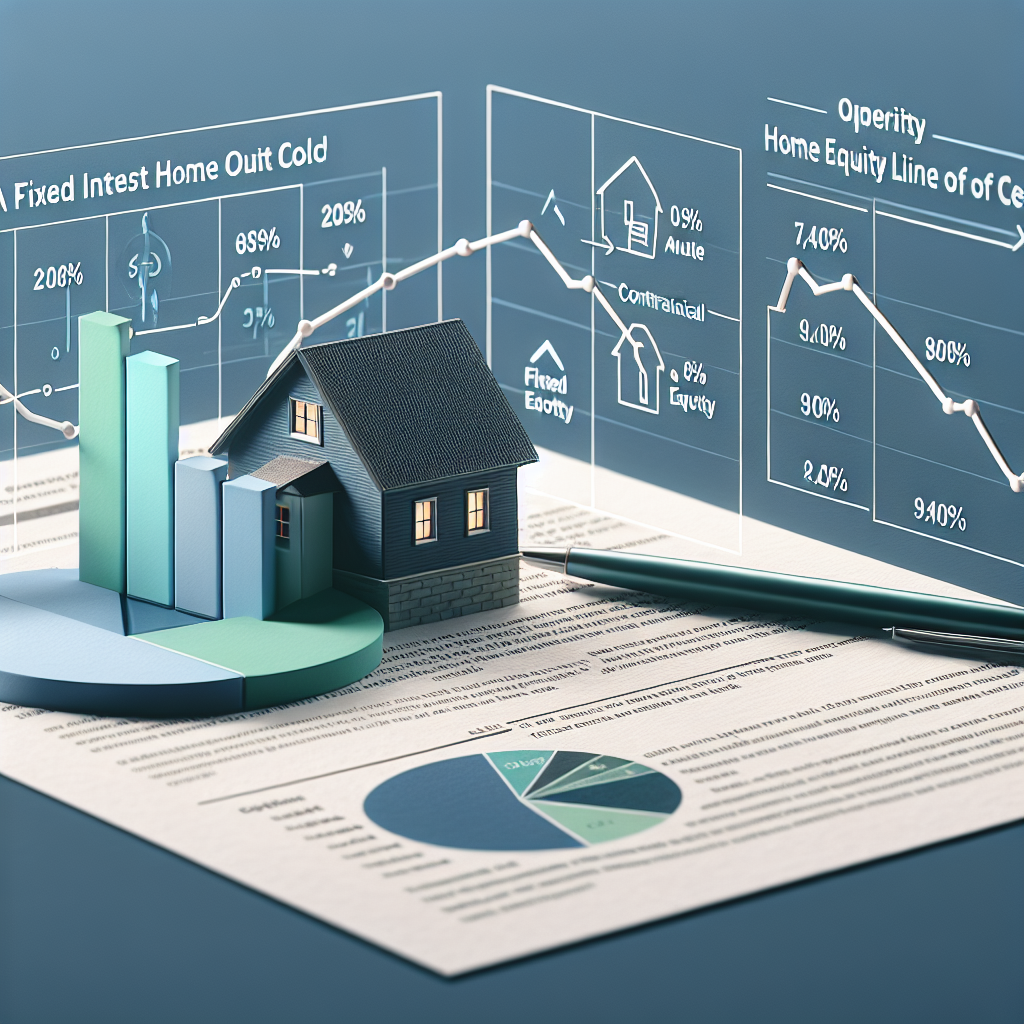
Fixed interest heloc
The Comprehensive Guide to Fixed Interest HELOCs
Home Equity Lines of Credit (HELOCs) have become an increasingly popular financial tool for homeowners looking to access the equity in their homes. While many people are familiar with variable interest HELOCs, the concept of a fixed interest option often raises questions. In this article, we will explore what a fixed interest HELOC is, its advantages and disadvantages, as well as the factors to consider when deciding if it’s the right option for you.
Understanding HELOCs
The basics of a HELOC revolve around borrowing against the equity of your home. Equity is the difference between your home’s market value and the outstanding balance on your mortgage. Lenders allow homeowners to borrow against this equity to fund various purposes, such as home improvements, debt consolidation, or even education expenses.
What is a Fixed Interest HELOC?
A fixed interest HELOC is a financing option that allows borrowers to access a line of credit based on their home’s equity, but with a fixed interest rate instead of a variable one. This means that the interest rate you sign up for will remain consistent throughout the life of the loan, providing predictability in monthly payments. This can be particularly appealing in a fluctuating interest rate environment.
Advantages of a Fixed Interest HELOC
- Predictability: With a fixed rate, borrowers can plan their finances more accurately without worry of increasing interest rates.
- Budgeting: Consistent monthly payments make it easier to stick to a budget.
- Protection from Market Fluctuations: Borrowers are shielded from the risks associated with rising interest rates.
- Potential Tax Benefits: Interest paid on a HELOC may be tax-deductible, depending on how the funds are used.
Disadvantages of a Fixed Interest HELOC
- Less Flexibility: Unlike variable-rate options, a fixed rate can't benefit from potential declines in interest rates.
- Higher Initial Rates: Fixed interest rates are usually higher than initial variable rates, which can lead to higher payments if interest rates remain low.
- Fees: Some lenders charge closing costs or annual fees, which can offset savings from a fixed rate.
Key Factors to Consider When Choosing a Fixed Interest HELOC
Deciding whether a fixed interest HELOC is right for you requires careful consideration of several factors. Here are important pointers:
- Your Financial Goals: Assess why you want to take out a HELOC. Are you planning a large expense, or do you need a safety net for emergencies?
- Duration of Use: Consider how long you expect to borrow against the line of credit. Short-term borrowing might not justify a fixed interest rate.
- Interest Rate Trends: Look at current and projected interest rates. If you expect rates to rise significantly, a fixed rate may offer the best value.
- Your Credit Rating: Your creditworthiness can influence the terms of your loan, including the fixed interest rate offered.
Comparing Fixed vs. Variable Interest HELOCs
It’s crucial to weigh the pros and cons of fixed and variable interest HELOCs. Below is a table comparing the two types:
| Feature | Fixed Interest HELOC | Variable Interest HELOC |
|---|---|---|
| Interest Rate | Fixed | Variable |
| Payment Stability | Stable Monthly Payments | Changes with Market Rates |
| Risk Exposure | Less Risk | More Risk |
| Initial Rate | Generally higher | Generally lower |
How to Apply for a Fixed Interest HELOC
Applying for a fixed interest HELOC is fairly straightforward. Here are the steps you typically need to follow:
- Determine Your Equity: Understand how much equity you have in your home.
- Check Your Credit Score: A higher score could qualify you for better terms.
- Shop Around: Compare offers from multiple lenders to find the best fixed interest rate.
- Gather Documentation: Prepare necessary documents, including income verification, tax returns, and financial statements.
- Submit Your Application: Complete the application process with your chosen lender.
Common Uses for Fixed Interest HELOCs
Homeowners utilize fixed interest HELOCs for a variety of reasons. Some common applications include:
- Home Renovations: Funding essential home improvements can enhance property value.
- Debt Consolidation: Lowering overall interest payments by consolidating high-interest credit card debt.
- Education Expenses: Financing tuition and educational fees, often at lower interest rates.
- Emergency Funds: Having access to cash for unforeseen expenses.
Alternatives to Consider
If a fixed interest HELOC doesn't seem to fit your needs, there are alternatives to consider:
- Personal Loans: Unsecured loans with fixed rates that do not require home equity.
- Home Equity Loans: These provide a lump sum with a fixed interest rate.
- Cash-Out Refinancing: Replacing your existing mortgage with a new one for more than you owe, allowing you to take out the difference in cash.
Conclusion
Understanding the nuances of a fixed interest HELOC is crucial for homeowners looking to leverage their home equity responsibly. With the benefits of predictability and stability in payments, it can be an excellent option for many. Always consider your financial situation, goals, and the current economic climate when deciding whether this financial product fits your needs.
In an ever-changing financial landscape, making informed choices is vital. Whether you decide on a fixed interest HELOC or explore alternative options, ensure that you're well-prepared for your financial journey ahead.
By Guest, Published on September 24th, 2024